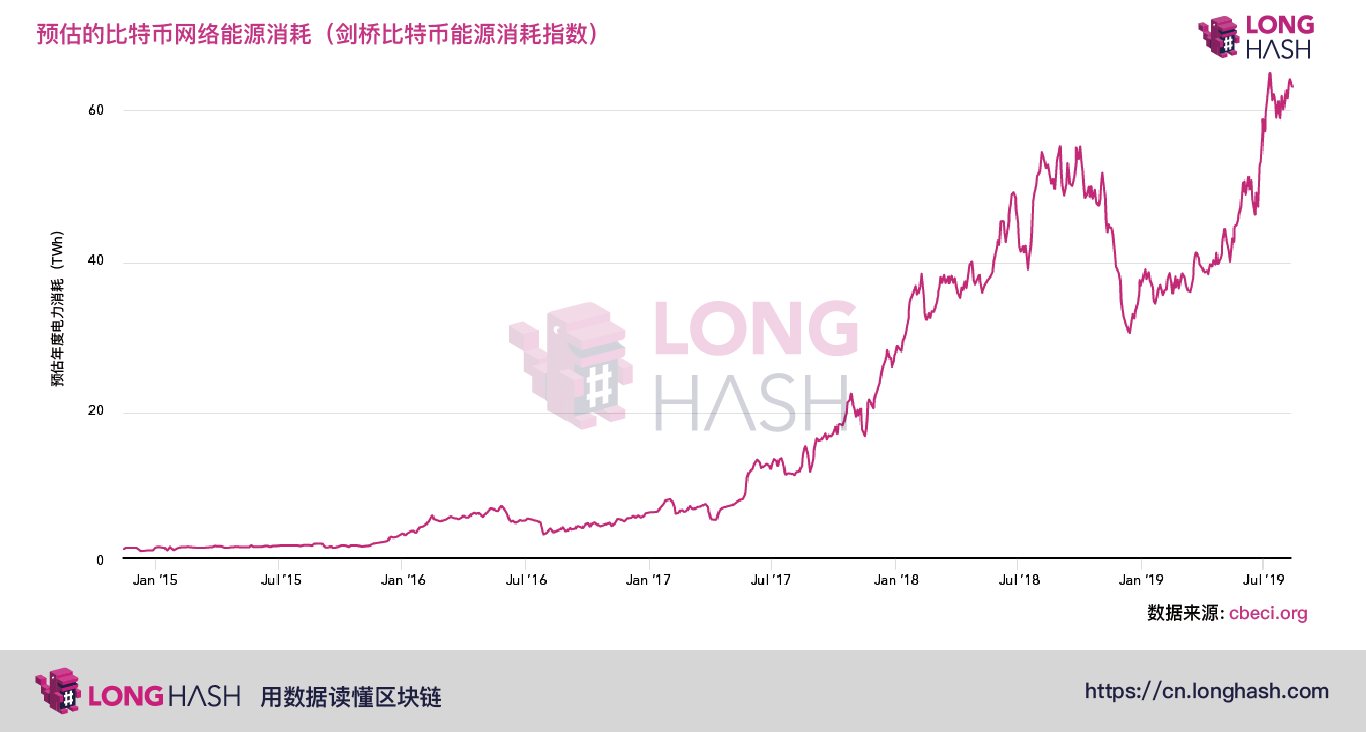Has Bitcoin's energy consumption level reached its historical peak and has an impact on the climate?
The Bitcoin Workload Proof (PoW) Consensus System is an important factor in making this cryptocurrency—and all subsequent cryptocurrencies developed based on Bitcoin—popular. But it is also the source of some environmental controversy, because the calculations required to create blocks and the maintenance of the network have considerable hardware requirements and consume a lot of power.
It's hard to accurately estimate how much power Bitcoin will consume, but two independent indicators—Digiconomist's Bitcoin Energy Consumption Index and Cambridge's Alternative Finance Research Center—are estimated to have reached Bitcoin this summer. Even more than its highest level of energy consumption ever. Despite their differences (Digiconomist is slightly higher), both sides believe that this year's energy consumption peaked in early or mid-July and remained near the historic high of 60-75 TWh per year.

According to Cambridge, this means that Bitcoin consumes about 0.25% of the world's total energy consumption. From this perspective, if these estimates are accurate, the energy consumption of the Bitcoin network may be equivalent to the entire country of Colombia, with a population of approximately 50 million.
- Wal-Mart applies for patent based on blockchain-based drone communication
- Proficient in IPFS: IPFS Get content above
- Ethereum 2.0 terminology reveals why a beacon chain is needed
For Bitcoin, this news is a bit embarrassing, because the timing of its peak energy consumption just hits the highest temperature period caused by climate change caused by human activities.
However, the energy consumption of a Bitcoin network is not entirely an indicator of its impact on the climate.
On the one hand, many bitcoin miners come from renewable energy power plants. According to Cambridge, the share of renewable energy may be between 20% and 70% of the total energy consumption of the Bitcoin network. Even in the worst case scenario, when all electricity is generated by burning coal, the bitcoin network emissions are still far less than 1% of global carbon dioxide emissions.
On the other hand, indicators such as this track only the energy consumption of the mining itself and therefore do not take into account other potential environmental impacts. Production and transportation of mining machines also consume energy and generate emissions. In addition, cooling these mining equipment – especially in this hot summer like never before.
While the global community is striving to reduce energy consumption, seeing the energy consumption of Bitcoin soaring to new heights is certainly not an ideal means of publicity. In addition, although still minimal compared to emissions from other activities, we still have to ask, when many blockchains have been able to achieve a secure consensus through PoS, without the need for expensive, energy-intensive Why do we consume so much energy when we mine?
LongHash , read the blockchain with data.
We will continue to update Blocking; if you have any questions or suggestions, please contact us!
Was this article helpful?
93 out of 132 found this helpful
Related articles
- The openness of the blockchain, can open the door to the value of the Internet?
- US debt fell, US stocks fell, bitcoin fell below $10,000 in a short period of time
- Looking at the research perspective of digital currency from Libra
- Media: The Supreme People's Court is building a unified platform for the judicial blockchain of the People's Court
- When the 6-year off-the-job farce ended, the impact of the biggest risk event at the end of the year on Bitcoin
- Event Review | Secret 19-year Bitcoin skyrocketing truth: Trump Twitter
- Observing that the US stock market fell sharply, gold rose, BTC fell below 10,000 US dollars, saying good hedge?






